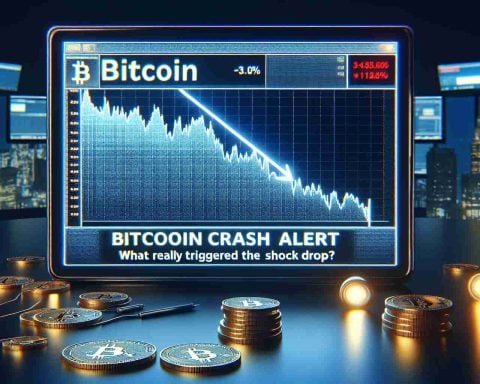Ripple’s (XRP) latest market performance has sparked conversations around the future of global finance, revealing a landscape filled with both promise and precariousness.
A Shift Towards Financial Independence
Ripple’s surge has ignited curiosity within the decentralized finance (DeFi) community, highlighting potential for societal impacts. In regions underserved by traditional banking, Ripple offers an alternative path to engaging with the global economy, bypassing traditional barriers. This shift could revolutionize financial inclusion, granting individuals in such areas unprecedented economic participation. A crucial question looms: Will established banks incorporate Ripple’s technology into their systems or attempt to stave off this potential disruptor?
The Ripple Effect on Cross-Border Payments
Ripple’s key offering lies in its ability to drastically lower the cost and time of international transactions. This utility is especially beneficial to emerging markets, which can gain from reduced remittance fees, channeling more money to their local economies. Ripple’s existing partnerships with major financial entities indicate a growing acceptance of such innovative solutions, potentially leading to a harmonious blend of old and new financial systems.
Challenges in Trust and Regulation
Nevertheless, Ripple’s upward trajectory raises questions about its long-term viability and trustworthiness. Legal victories have instilled investor confidence; however, Ripple’s global regulatory compliance remains a significant hurdle. Different countries maintain varied stances on cryptocurrency regulations, and Ripple must navigate these complexities without compromising its decentralized nature.
To sum up, Ripple’s rise presents a unique opportunity for financial innovation, sparking debates about control and regulation in the evolving world of global finance. For further insights into Ripple and its ecosystem, delve into platforms like Ripple and CoinMarketCap.
The Ripple Revolution: The Untold Stories of Impact Beyond Finance
The emergence of Ripple (XRP) as a formidable force in the cryptocurrency world is often seen through the lens of financial transformation. However, the ripple effects of this digital currency extend far beyond the traditional boundaries of economics and finance, impacting various aspects of society and global dynamics. Let’s explore the unexplored avenues and what they mean for the present and future.
The Unseen Benefits of Ripple in Crisis Zones
While the discussion has largely centered on financial inclusion and cross-border payments, one of the less highlighted benefits of Ripple is its potential impact in conflict zones or countries facing political instability. Areas where traditional banking systems have collapsed could see cryptocurrency as a lifeline. Without a central authority to regulate or suppress financial transactions, Ripple enables individuals to maintain economic agency even in dire circumstances. This brings us to an intriguing question: Can Ripple act as a stabilizing force in unstable regions?
Environmental Impact: A Double-Edged Sword?
Cryptocurrencies have often been criticized for their environmental impact due to energy-intensive mining processes. However, Ripple, unlike Bitcoin, utilizes a consensus protocol that significantly reduces energy consumption. This makes Ripple one of the more environmentally friendly digital currencies, aligning with global sustainability efforts. On the downside, Ripple’s centralized nodes can pose environmental risks if not managed sustainably by the banks and institutions running them. Is the trade-off worth exploring more energy-efficient alternatives, or should the focus remain on optimizing existing infrastructure?
The Social Dynamics of Decentralized Finance
The shift towards decentralized finance (DeFi) with Ripple’s integration prompts significant social changes. It challenges conventional financial institutions, potentially redistributing power from centralized authorities to individual users. This raises critical ethical questions:
– Does this democratization of finance also lead to increased financial risk for individuals unfamiliar with managing digital assets?
– How can governments and educational institutions mitigate these risks through public awareness and education?
Legal Controversies and Global Interactions
Ripple’s journey is fraught with legal battles that shape its interaction with global markets. The resolution of these issues can set precedents for other cryptocurrencies, influencing international law and finance. Nations like El Salvador, which embrace cryptocurrencies, could push others towards digital currencies, affecting both national economies and international relations.
In conclusion, the impact of Ripple on our world isn’t just about financial markets; it’s a multifaceted revolution influencing environmental policy, social dynamics, and even legal frameworks. These diverse implications pose both opportunities and challenges that need to be navigated carefully.
For more on cryptocurrency’s broader implications, explore resources like CoinDesk and The Verge.
















